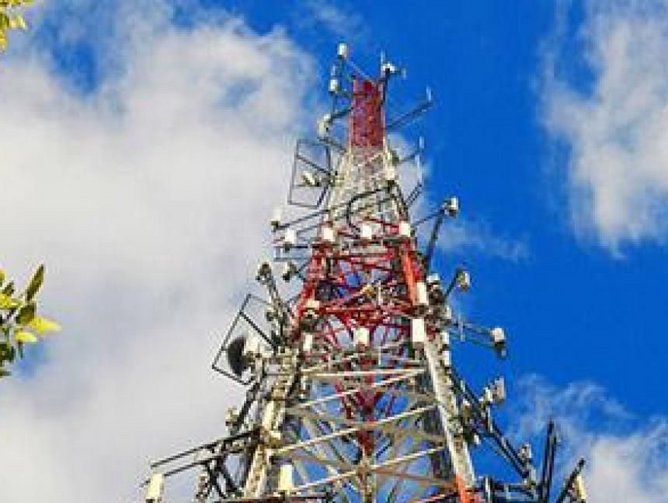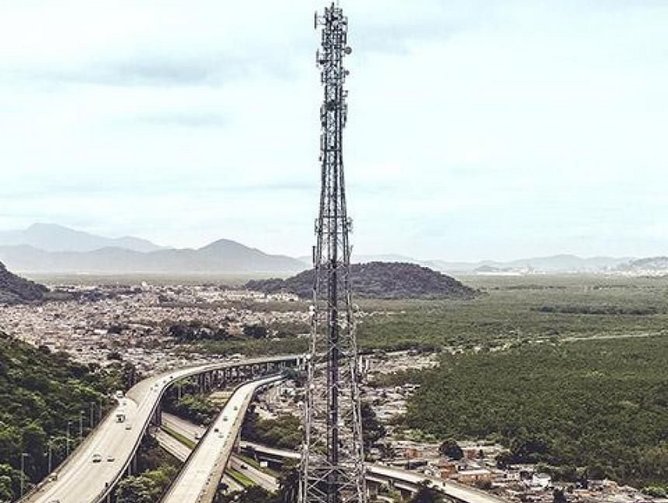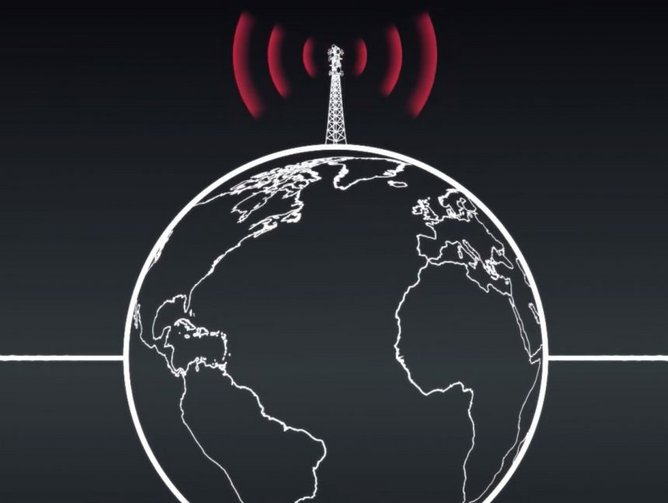American Tower: Transforming supply chain into the digital era
Established in 1995, American Tower is one of the largest global Real Estate Investment Trusts (REITs) that operates and develops wireless and broadcast communications. Its portfolio includes: 171,000 communications sites with 41,000 properties in the US and 130,000 properties internationally. American Tower does not think in the short-term, it is here for the long haul, with ambitions to make wireless communication possible everywhere through its innovation, efficiency, growth and leadership.
Collin Mugisha, Head of Supply Chain (EMEA), American Tower, has worked in the Supply Chain industry for almost twenty years. In that time, he has had a broad scope of experience across procurement, logistics, warehousing, P2P processes, management of contractors, contracts, relationships, partnership building and use of technology in supply chains. After seven years of working at American Tower, Mugisha still loves his work with the company. He believes that American Tower’s “unique processes and systems” are key to its competitive edge, along with its process across multiple cultures, its ambition to expand into new markets and its long-term vision.
Vision for Africa
American Tower – headquartered in Boston, Massachusetts – “has always had the strategy to grow over a period of time,” says Mugisha. The company now operates in countries such as India, Mexico, France, Germany and Brazil. In 2015, it opened its office in Nigeria, Africa, with the ambition to break into new markets to “double its portfolio and double its possibility,” he continues. “With this expansion, American Tower aims to give back to the African community by developing community initiatives.” Nigeria is American Tower’s largest market in Africa and although there is significant potential within the African market, it is a sector that is not without its challenges. For example, current power availability in Africa remains a limiting factor, due to technical sites needing 24/7 power. As a result, says Mugisha, “management of this side of the business is required at all times to ensure the company is in line with its service level agreements.”
Digitally transforming American Tower’s supply chain
At American Tower, analysis and performance management is an integral part of its supply chain process. From inception, the company has rolled out the Oracle ERP platform in order to integrate its targets into one platform for performance management and has since been modifying its capabilities to best suit the company. “Performance management helps you identify goals, attributes and characters that you need to improve on. This is an incredibly important process,” explains Mugisha. “Whether its digitally or manually, performance management helps you become better at what you do, so if you do not evaluate your performance against what you are doing it becomes difficult to improve.”
Mugisha asserts that the business continuously looks to digitise any inefficient processes: “The manual process of ‘who does what, when they did it and why they did it is inefficient,” he explains. “Digitalisation of this process will streamline operations in Africa and leave a trail to track for analysis of outcomes to help further develop and grow the business.” So far, Mugisha has implemented the supply chain functions of the ERP system to help with this process with further changes being implemented when required to help foster improvement, development and growth. With the help of technology such as Oracle, American Tower has standardised its processes across the world, implementing guidelines and policies that are cost-effective and efficient. “If you go to Nigeria, you'll find that it is the same process as in Uganda as opposed to making it different for every supplier everywhere.” Without a doubt, Mugisha believes American Tower will 100% benefit from the company’s efforts towards digitalisation, but only if all processes and systems are efficient for cost management.
To further digitalise supply chain Mugisha wants to eliminate office space entirely for tasks that can be done from any location such as making approvals for orders. “I would like to have a scenario where we don't even have to come into the office and be able to do all these tasks from anywhere. I don't have to be in the office to make approvals about an order or a purchasing position for example,” says Mugisha. Additionally, Mugisha wants to “be able to automate each and every process” that is in supply chain, not only just in performance evaluation. Over the years American Tower has worked with a number of valuable partners such as Galooli POWER , who has assisted American Tower to develop software for site monitoring: “Working together in the last seven years, Galooli brings a true value and a strong relationship to American Tower and emphasises the importance of us as a real partner.” Says Leehu Hacohen. Other companies American Tower has worked with include Incell Engineering, who provide American Tower with batteries and iEngineering Group, who assists with developing prototypes and upgrading communication towers. These partnerships are mutually beneficial for American Tower and its partners as they work to grow each other and evolve solutions to help other businesses in Africa in the future.
The future of American Tower
Looking to the future, Mugisha sees digitalisation and standardisation as being a key trend in the African market, “we're still way behind to digitalise operational systems and this isn't good because it creates a lot of inefficiency and increase cost.” In addition to this, American Tower is currently in the process of acquiring Eaton Towers in an approximately US$1.85bn deal. The signing is yet to take place, however, due diligence is being carried out to assess Eaton Tower’s portfolio prior to the take-over, focused on five key areas: Uganda, Kenya, Ghana, Burkina Faso and Niger. The merging of American Tower and Eaton Towers is a response to American Tower’s mission to “get into new markets and new operations.” Merging with Eaton Towers will help expand its site portfolio in Africa, grow its experience of different markets, and offer new technologies. As a result, these benefits will help with American Tower’s goal to be even more cost effective and efficient. Alongside the benefits of the company’s merger with Eaton Towers, Mugisha does foresee that there will be challenges such as, software integration of the two companies, receptive customers to each other’s products, standardising company processes and training employees on new system changes.
For Mugisha, American Tower’s capacity to maintain relationships with network operators, ability to provide high quality products and its focus on providing real estate wireless and broadband solutions is paramount. “Innovation will continue to be a very important aspect for our business moving forwards,” he says. As American Tower aims to continuously evaluate its processes and develop innovative solutions for its customers, it seems certain that these goals will be achieved.





